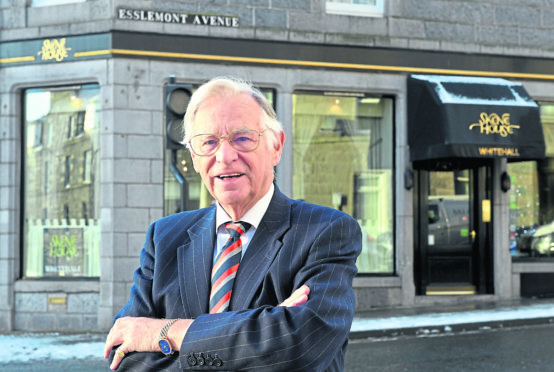Business leaders have criticised the “regrettable” decision to cut hundreds of thousands of pounds from Visit Aberdeenshire which they believe could leave the hospitality sector “crippled”.
New figures from STR have shown hotel occupancy rates were on the rise last year for the first time since the oil and gas downturn.
But fears have now been raised the industry could end up back on a downward spiral after Aberdeen City Council’s budget cuts resulted in £260,000 being axed from the tourism body.
Last night economic development body Opportunity North East confirmed it too would be reducing the amount of money it contributes to Visit Aberdeenshire’s pot.
A spokeswoman said: “We understand the budget challenges faced by Aberdeen City Council, but it is disappointing that investment to secure long-term business growth in a key sector, create higher value employment and provide opportunities for the region’s people and communities is being impacted at a critical time of transition for the regional economy.
>> Keep up to date with the latest news with The P&J newsletter
“Opportunity North East (ONE) is a core partner in the tourism sector and funder of Visit Aberdeenshire. The reduction in funding to Visit Aberdeenshire from Aberdeen City Council will result in a reduction in funding from One because of One’s match-funding requirements.
“One’s immediate priorities are to work with partners to maximise investment for future tourism growth and ensure that Visit Aberdeenshire builds a sustainable model for the future.”
Last night Andrew Martin, vice-chairman of the Aberdeen City and Shire Hotels Association, said the news came as a “double whammy” to the tourist board, which he believes has helped get the ailing sector back on its feet.
He said: “Following the oil and gas downturn occupancy rates dipped and the amount being charged for a room almost halved between 2013 and 2018.
“However what the sector was starting to see was an increase in leisure tourism as the visitor economy started to move away from oil and gas and hotels were experiencing increased business at the weekends.
“That has to be credited to Visit Aberdeenshire and the work it has been doing over the last 18 months.
“My worry, as part of the hotel association, is we are still behind the Scottish average and we need all the help we can get in marketing ourselves against the competition of north England and Wales.”
Mr Martin said it was also a concerning time given the number of new hotels in the pipeline.
He said: “It is always great to be able to give our visitors a wide choice of where to stay when they come to Aberdeen but in terms of pure economics if you have more hotels and fewer visitors because the region is not being marketed effectively it’s going to lead to a lot of empty rooms.
“I truly believe tourism is worth investing in as in 40 years time everyone will be working in tourism, not in oil and gas.”
Local entrepreneur Charles Skene said the hospitality sector had already been very severely hit by business rates assessors who were “completely out of date from economic reality”.
He said this, along with cuts to the tourism body, would “cripple the industry.”
He said: “In the last few years the visitors to Aberdeen have dipped considerably and this has had a detrimental affect on many hospitality businesses in both Aberdeen city and shire.
“While I have sympathy for the council having to adjust expenditure because of decisions taken by the Scottish Government, essentially the reduction of finance given to Visit Aberdeenshire may well impact further on the reduced number of visitors coming to the Aberdeen area which is really bad news for everyone in the hospitality business.
“There are a number of hotels in Aberdeen which have been on the market for years or which have closed down. The Highland Hotel is shut as is the Brentwood Hotel. It’s remarkable because they are both big units. Hospitality is suffering very badly in Aberdeen and Aberdeenshire and anything that takes down the number of people that comes to this part of the world will be deeply regretted.
“This, along with the business rates which are completely out of date from our economic reality, is crippling the industry.”
